The trend in automotive fluids is to be application-specific. You can no longer select motor oil simply by viscosity, assume that any oil in the same multi-grade viscosity range offers adequate protection for a given engine, or select a lubricant without knowing in advance that it matches the engine technologies of the vehicle. Here we highlight critical information about motor oil to help you make your choice for a given Volkswagen application.
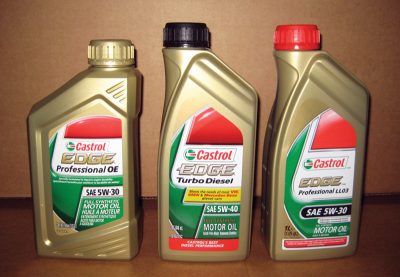
Volkswagen stays at the leading edge of technology. Its vehicles have long been at the forefront of replacing iron and steel with lighter plastic, aluminum, and composite materials. The company has pioneered computerized controls that operate components at or near maximum load, temperature, and pressure. It has put a lot more science into each of the fluids used to keep today’s Volkswagen systems operating within specification, yet close to their performance limits.
In this direct-injected, turbocharged, variable valve timing world, the lubricants and fluids that allow vehicle components to slip, grip, or stay cool have evolved to perform under new, more demanding engine operating conditions.
Application-specific Motor Oil
Beginning in the mid-1990s, VW established its own motor oil specifications. They were more demanding than most U.S. standards, and added extra protections that went beyond even the ACEA (European Car Manufacturer Association) specs, which already were higher than American requirements.
The VW motor oil specifications were application-specific, and evolved as the company’s engine technologies changed over time. They resulted in very different lubricant formulations for its turbo direct injected (TDI) diesel than for an electronically fuel injected (EFI) gasoline engine, for extended drain versus regular oil change intervals, and for vehicles with or without various exhaust after-treatment devices. To have confidence when performing a VW oil change, make sure you look up the correct lubricant specification for the vehicle in your bay.
By the Numbers
Here we offer a cheat sheet to help you understand when and why to use a given VW motor oil specification:
VW 500.00/501.01 – Lighter Oils, Tougher Sludge Protection
The VW 500.00 specification was designed for 1999 and older gasoline engines and some naturally-aspirated diesels. It was part of a shift to lighter weight multigrade oils that supported not only fuel economy, but also improved sludge protection and, to a lesser degree, oxidation and wear resistance.
The 501.01 specification also applies to 1999 and older vehicles, and is very similar to VW 500.00.
VW 502.00/505.00 – Severe Duty, Higher HTHS Viscosity Minimum
Throughout the 1990s, VW introduced new models as engineers found ways to beef up engine output and enhance durability. A new VW 502.00 specification was developed for gasoline engines that often are used in severe service — a set of driving conditions characterized by frequent cold starts, short distance city round trips, heavy-load or racing, and cooler climates. The 502.00 specification established tougher oxidative thickening and piston deposit limits.
A 502.00-approved 5W-30 must maintain HTHS viscosity at 3.5 cSt and “stay in grade†for 30 flow cycles. The 502.00 specification also embraced lighter multi-grade oils, including 5W-30 and 0W-30, to help increase fuel economy.
The 502.00 specification is for use only in gasoline engines that have fixed oil change intervals. There are 505.00 and higher specifications for diesel, and 503.00 and higher numbers for vehicles with variable service intervals.
VW 502.00-certified oils must not be used in any vehicles with variable service intervals. These vehicles include an oil monitoring system that alerts the operator if oil degradation exceeds limits before the extended drain interval is reached.
Software in the oil monitoring system is keyed to the performance properties of the specified oil. The VW software knows how long the correct oil should last under a given range of driving conditions.
502.00-certified oil is formulated for a regular oil change interval, not the longer extended drain that is typical of vehicles with variable service intervals. If the vehicle contains 502.00-certified oil, the monitoring system may give an inappropriate oil change recommendation.
NOTE: Vehicles with variable oil change intervals must have the oil monitor reset after every oil change in order for the system to function properly.
VW 502.00 supersedes both 500.00 and 501.01.
VW 505.00 is the diesel variation on 502.00. It is now used only on pre-2000 model year diesels with no unit injection system (and with or without turbochargers). For diesels from 2000 and up, 505.00 has been superseded by VW 505.01 and higher specifications.
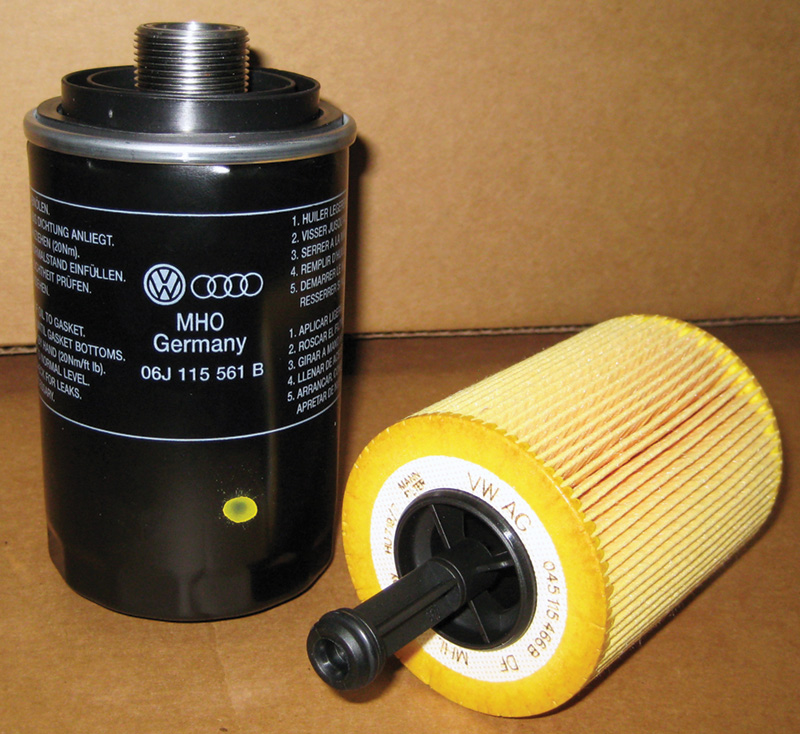
VW 505.01—Turbocharged, Direct-injected Diesel
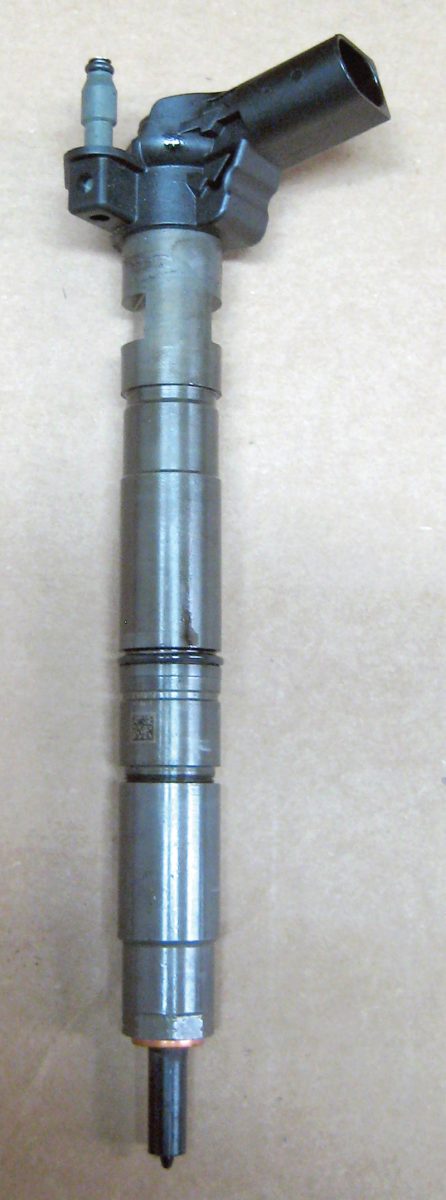
When VW first applied its venerable electronic fuel injection (EFI) system to diesel, it hit all of its targets. The new diesel electronic control system, called Turbo Direct Injection (TDI), improved power output and cold start efficiency. Real-time sensors monitored engine conditions to inform the ME (Motor Electronics), thus allowing it to make accurate decisions, and to alert the operator immediately if emissions performance was deteriorating.
In 2003, Volkswagen introduced Pumpe-Düse (PD) technology, which combined fuel pump and fuel injection capabilities into one unit for each cylinder. The camshaft activates the fuel injector pump through a roller rocker arm.
The high stress on the lifters and their cams created a need for oil that offered greater protection against valve train wear.
To prevent oxidation and oil coking, and to avoid damaging the injector pump in these PD engines, Volkswagen created its VW 505.01 lubricant standard.
The VW 505.01 specification requires an oil to offer better protection against soot thickening, wear, piston deposit formation, and oxidation. Oil must conform to VW 505.01 in order to help prevent the formation of harmful sludge and deposits, according to Volkswagen technical bulletin #C 17-05-01. Use of non 505.01-certified oil in a PD engine can lead to excess valve train wear due to inadequate lubricant protection of lifters and the corresponding cam lobes in the TDI engine.
The VW 505.01 standard applies only to vehicles with a standard oil drain interval. It replaces the older VW 505.00 specification that applied to pre-2003 passenger car diesel engines without PD injector technology.
VW 503.00/506.00 – Long-life Service, Fuel Economy
Thanks to its tightly-controlled molecular structure, synthetic oil is able to provide excellent thermal stability, wide temperature range, and superior wear resistance while requiring fewer viscosity improvement and antioxidant additives. This superior heat and oxidation resistance of synthetic oils allowed Volkswagen to introduce longer drain intervals while also using thinner, more fuel-efficient oil formulations.
The VW 503.00 (gasoline) and 506.00 (diesel) specifications established requirements for oil to protect an engine for up to 30,000 kilometers (18,641 miles). VW 506.00 is not for use on diesel vehicles with a single fuel injection pump.
VW 503.01/506.01 – High Shear Protection
The Volkswagen 503.00 and 506.00 specifications were fine in Europe, but suffered a bit in the U.S., where oil standards at the time emphasized fuel economy more than wear protection. Some U.S. oils could meet VW 503.00/506.00 without matching the 3.5 cSt high shear protection that was common in European oils.
Volkswagen promptly introduced 503.01/506.01, which added an explicit requirement that VW long-life oil provide 3.5 cSt high shear protection. The new specification strengthened antioxidant and piston deposit protection requirements in VW oil for gas and diesel engines used in high-stress driving conditions. VW 503.01/506.01 are now superseded by VW 504.00/507.00.
VW 504.00/507.00 – Protecting Emissions Reduction Components
With the introduction of three-way catalysts, diesel particulate filters (DPF), and other emissions control technologies, engine oil formulators faced a new challenge. The things that reduce NOx in a diesel engine lead to increased soot load on the oil.
For example, exhaust gas recirculation (EGR) redirects unburned hydrocarbons away from the exhaust system upstream of the catalytic converter and back to the combustion chamber for a second chance to be burned. While this reduces emissions, it also creates a higher amount of combustion byproducts – soot – that must be contained by the lubricant.
To prevent soot from harming the catalyst in three-way converters, or reaching and plugging the diesel particulate filter, VW established its 504.00 / 507.00 oil standards.
Oils that meet VW 504.00/507.00 must have low sulphur, ash, and phosphorus (SAP) technology to prevent damage to after-treatment devices. They must also include high detergent and dispersant capabilities to encapsulate and hold contaminants in suspension until the next oil change.
VW 504.00 offers high temperature and high speed durability for turbocharged gasoline engines, and for pre-2000 model year diesels.
VW 507.00 can be used in almost all Volkswagen diesel engines from 2000 onwards, including turbocharged PD engines with unit injector pumps and extended service intervals (up to 30,000 km/18,641 miles, or 24 months). VW 507.00 is not to be used in vehicles that do not contain a diesel particulate filter (DPF). These vehicles must use VW 506.01 specified oil.
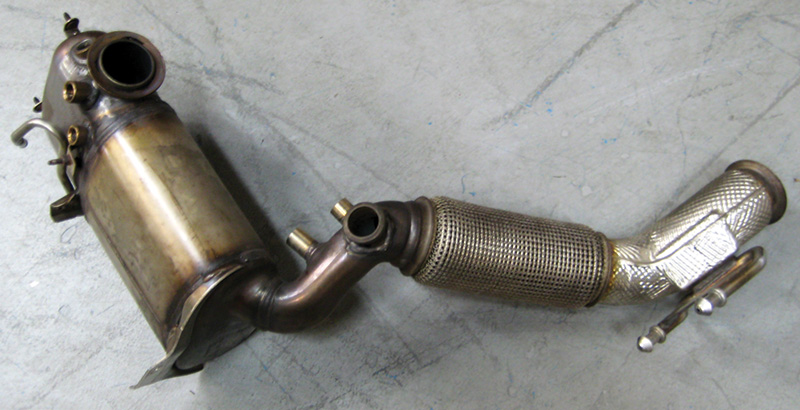
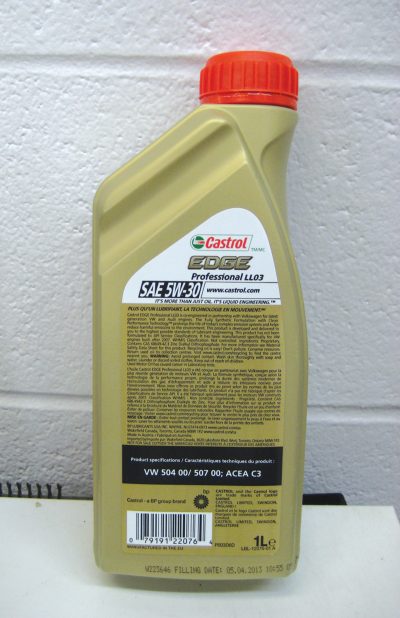
Forget almost everything you just read
It helps to understand why an original equipment (OE) manufacturer requires motor oil to match a given application, but you don’t have to memorize the details of the different specifications. And you don’t have time to study the peculiarities of every lubricant rating system.
You do need to read the back of the motor oil label. Watch out for language that says a brand is recommended for use in all VW engines of a certain model, engine size, or year range. If it meets the Volkswagen certification, it will list the specification for which it is approved on the label.
OE lubricant specifications are a code, a type of shorthand to let you know which motor oil meets the exact requirements of the vehicle you are servicing. Match the specification to the vehicle. That’s all you need to remember.
Download PDF
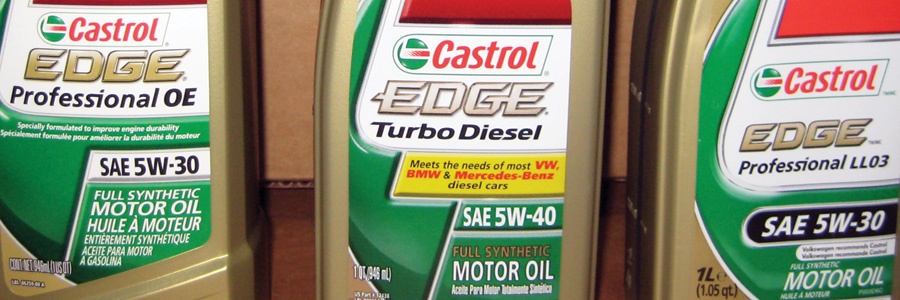

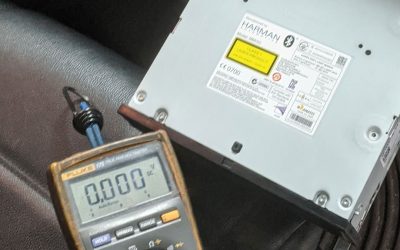
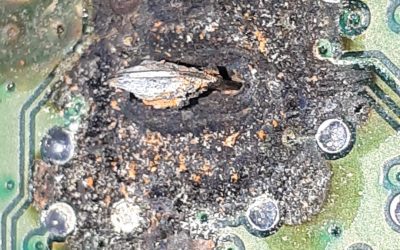
0 Comments